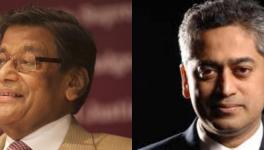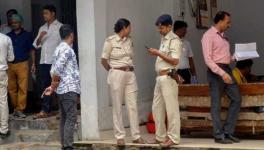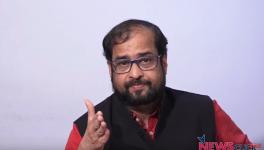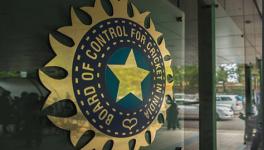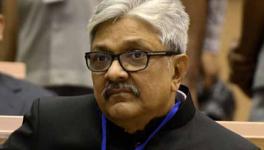The Government has Acted in an Arbitrary, Illegal and Unconstitutional Manner

The outrage over Justice K. M. Joseph's name being hived off and returned by the government is far from dissipating. Mr G. D. Inamdar, a retired district judge from Solapur, filed a petition on April 26 in the Supreme Court to “uphold the institutional integrity and independence of the Indian Judiciary, especially the Supreme Court of India, which the Union Executive/Central Govt is brazenly attempting to trample upon.” The PIL begins by stating that the petitioner has no issue with Justice Indu Malhotra's appointment, his only issue is with the government not appointing Justice Joseph, that too without following the established norms.
The petitioner has sought relief by way of a writ, Order, or direction to quash and set aside the “brazen, ill-conceived, arbitrary, illegal and unconstitutional action” of the government. He has also sought that the Court issues appropriate directions to the government to act on the recommendation of the Collegium. The directions to be issued should also preserve the seniority the Collegium had through the recommendation implied.
The petitioner has challenged the government's reasons for rejecting Justice K. M. Joseph's elevation. The government had listed three reasons; his name features lower in the seniority list, his parent High Court (Kerala High Court) has more than adequate representation in the Supreme Court, the Supreme Court has not seen representation from the SC/ST communities.
On the seniority issue, the petition first referred to a February 2 observation published by the Supreme Court on its website. The observation stated that the Collegium has considered Justice K. M. Joseph to be the most deserving among all the Chief Justices and senior puisne judges of the High Courts. To bolster the Supreme Court's position, the petition referred to the Second and Third Judges cases. In the Second Judges case, the majority view was that departure from the norm of elevation based on seniority should be supported by reasons in writing – which the Supreme Court did so in the February 2, observation. It was also mentioned that no appointments can be made by the president unless it conforms to the recommendation of the Chief Justice. The only criteria, the decision laid down for not appointing a name recommended by the CJI, was when new information regarding the personal character and antecedents of the person in question.
The Third Judges case laid down that merit is the predominant criteria for recommending a name. The decision further stated that just because a judge has been superseded once, it does not bar their elevation. In this regard, the Collegium must only note reasons for non-recommendation where the contender is someone who in their opinion should never be elevated to the Supreme Court.
The petition thus argues that the government cannot return a name on the basis of the information the Collegium had already considered. There should be new information which the Collegium did not consider or did not have access to.
The over-representation of the Kerala High Court in the Supreme Court was also challenged on several grounds. The first being that the government had stated that the Kerala High Court is a 'comparatively small High Court'. The petition pointed out that the Kerala High Court has a sanctioned strength of 47 judges, which cannot be considered a 'small court'. The Delhi High Court has a sanctioned strength of 48 judges – similar in size – yet there are three judges from the Delhi High Court in the Supreme Court. The second challenge was that Justice Kurian Joseph is the sole judge in the Supreme Court from the Kerala High Court. He is set to retire by November, which means that after his retirement there won't be any 'representation' from the Kerala High Court. The petition then alluded to the government's own antecedents – such as appointing several judges from the same High Court.
On the SC/ST criteria, the petition referred to it as a farce. He cited the already existing vacancies in the Supreme Court – at present there are seven and will become 12 by the end of the year. The petition challenged the manner in which the criteria was raised retrospectively.
The petition also referred to the previous incident in 2014 when the government hived off Senior Counsel Gopal Subramanium's name. Chief Justice Lodha's strong words to the government exposed the arbitrary manner in which the government had acted. It went to the extent that the Chief Justice called out the government for neither informing him or the Collegium of their decision – the Second Judges case made recording reasons and decisions in writing mandatory. Whether this petition will be taken up by the Court is something one cannot be sure of. The Collegium had met on Wednesday regarding Justice K. M. Joseph's elevation. However, their decision to resubmit his name was deferred.
Get the latest reports & analysis with people's perspective on Protests, movements & deep analytical videos, discussions of the current affairs in your Telegram app. Subscribe to NewsClick's Telegram channel & get Real-Time updates on stories, as they get published on our website.









